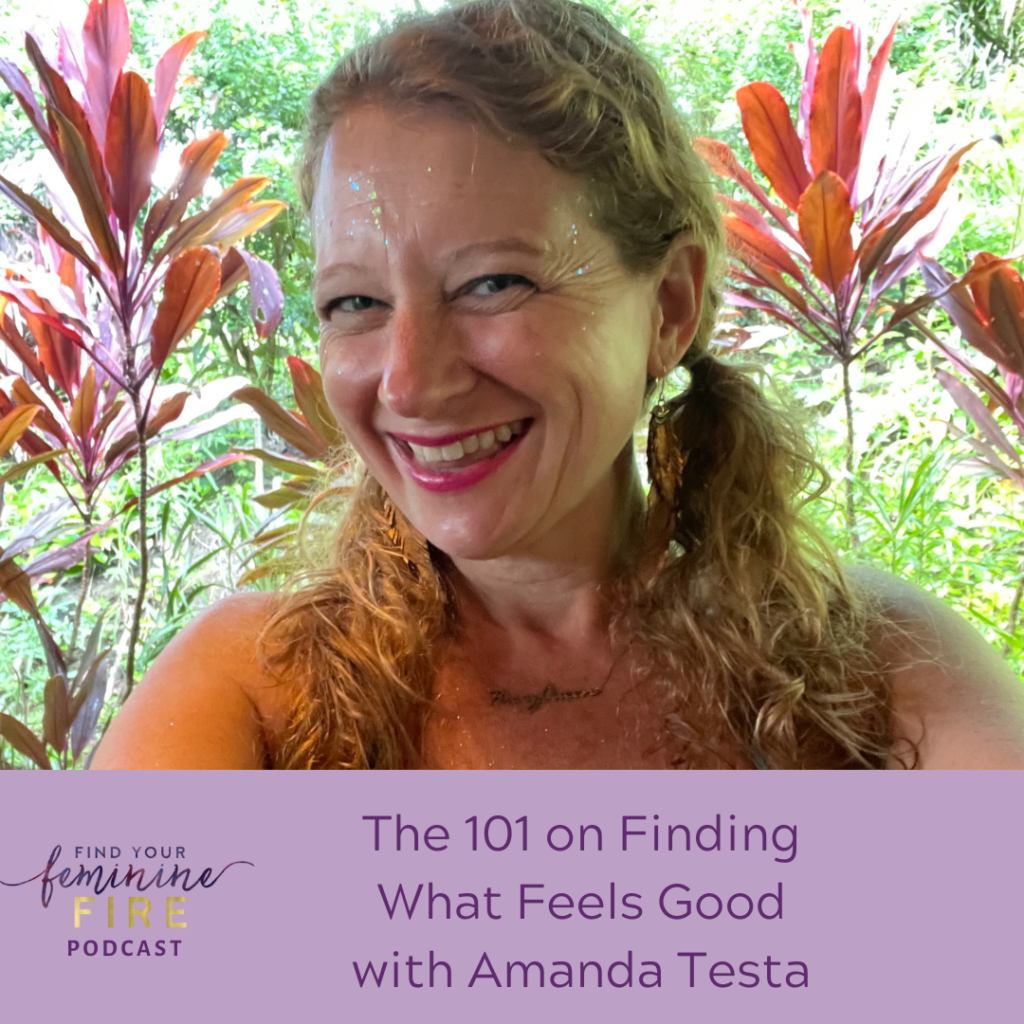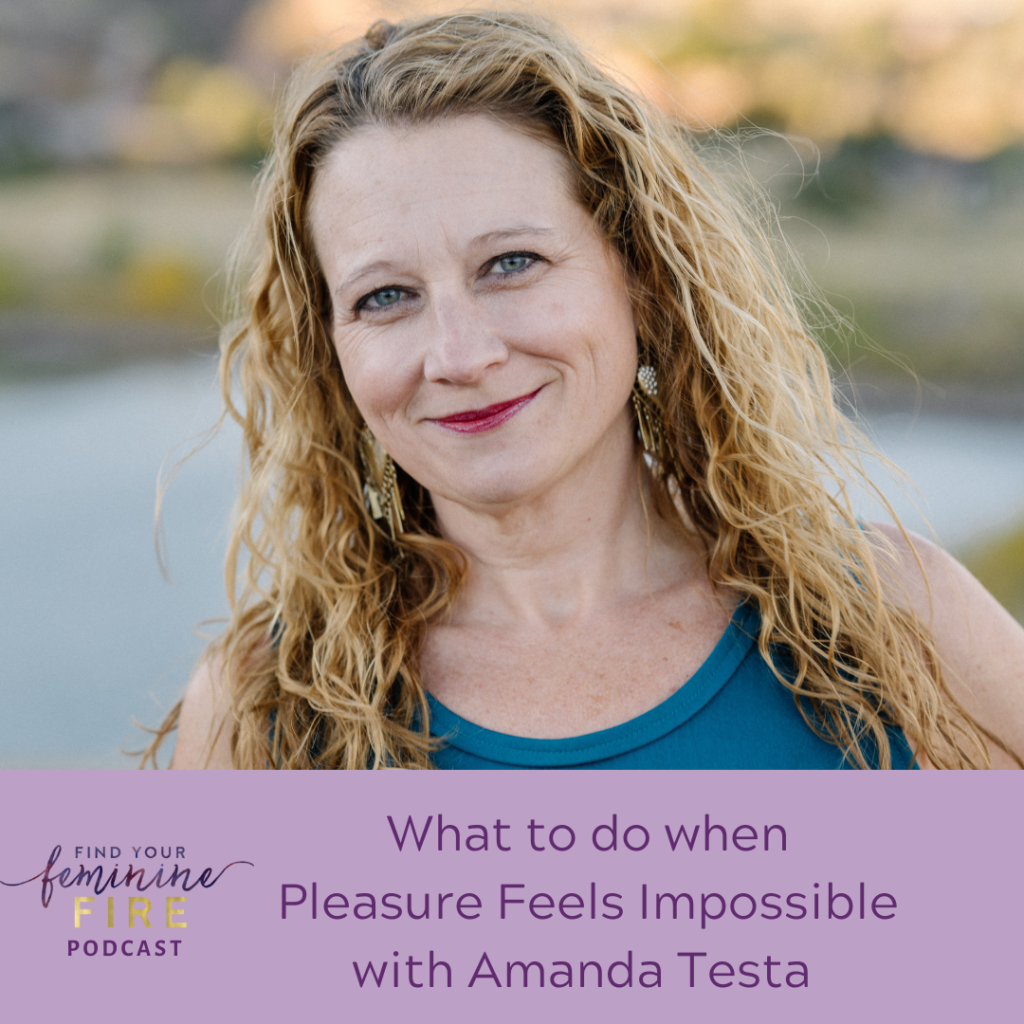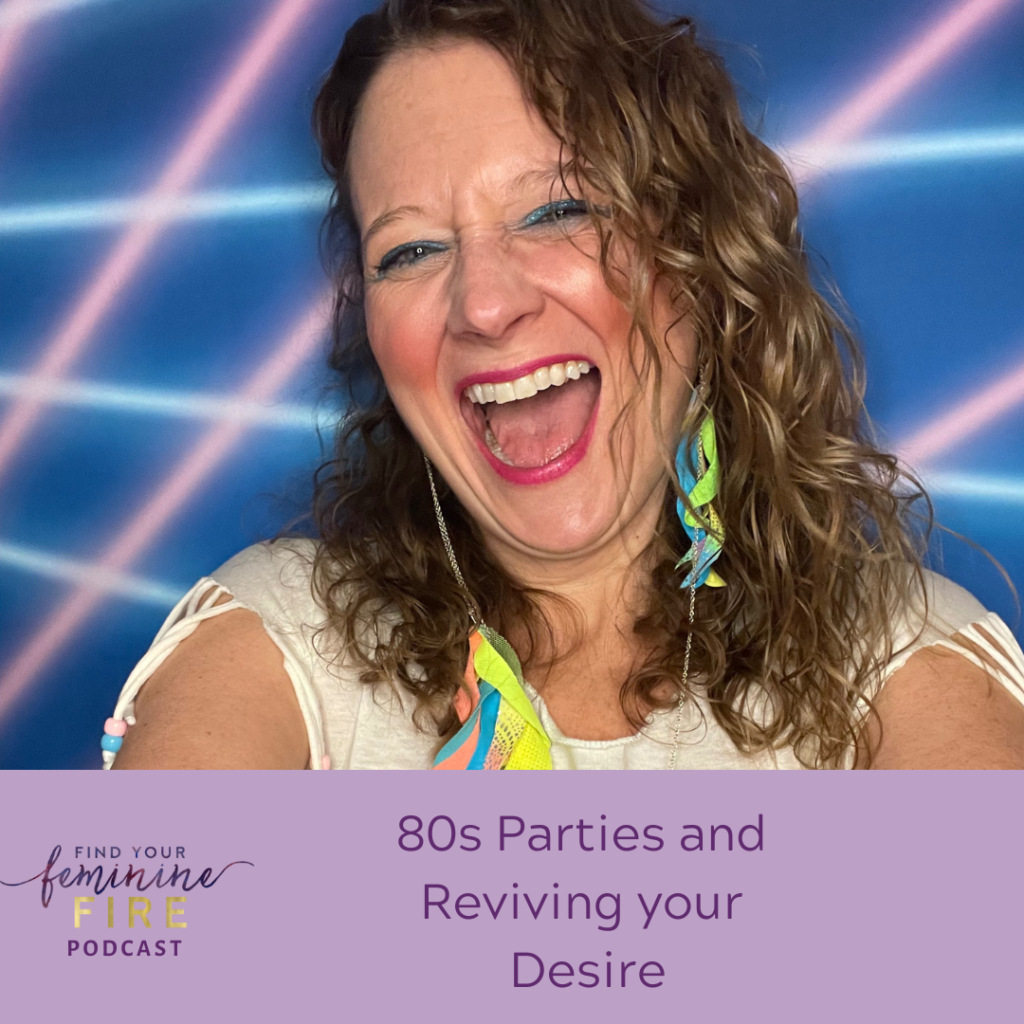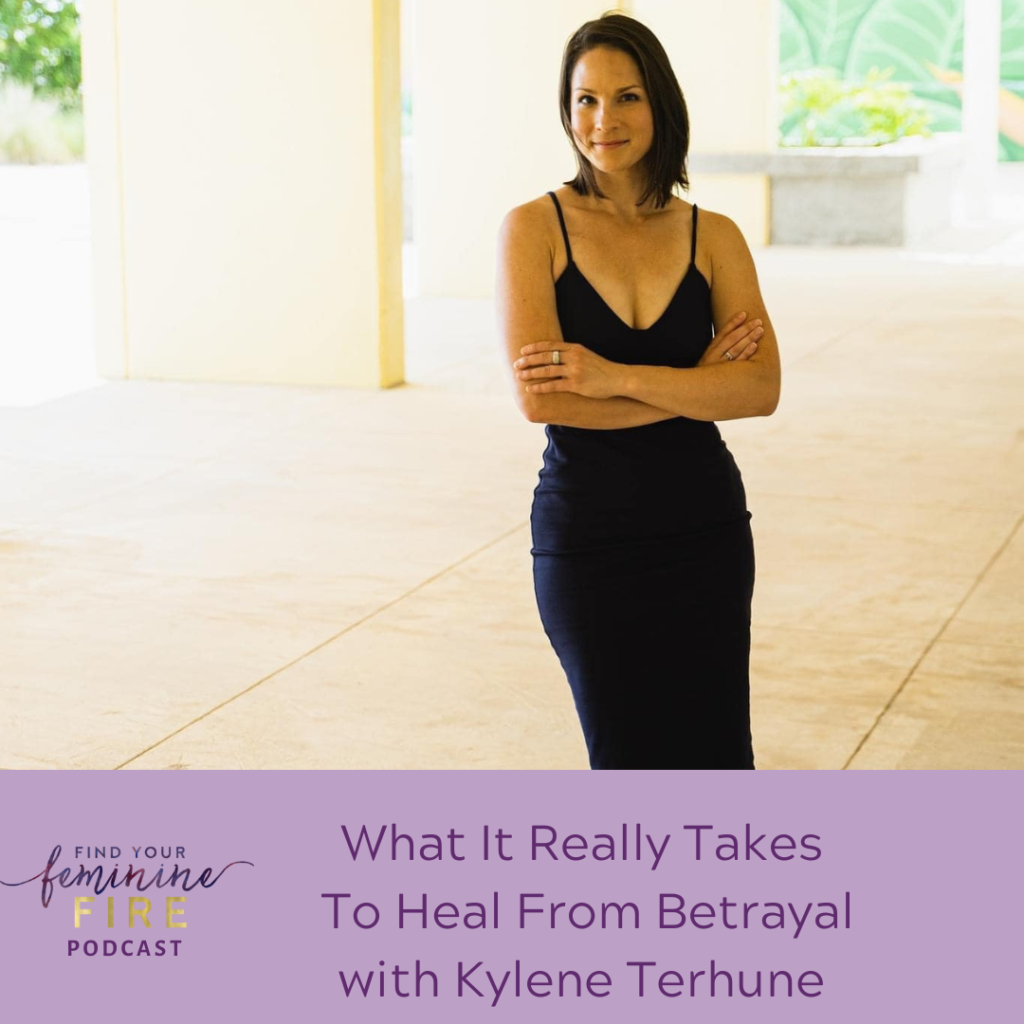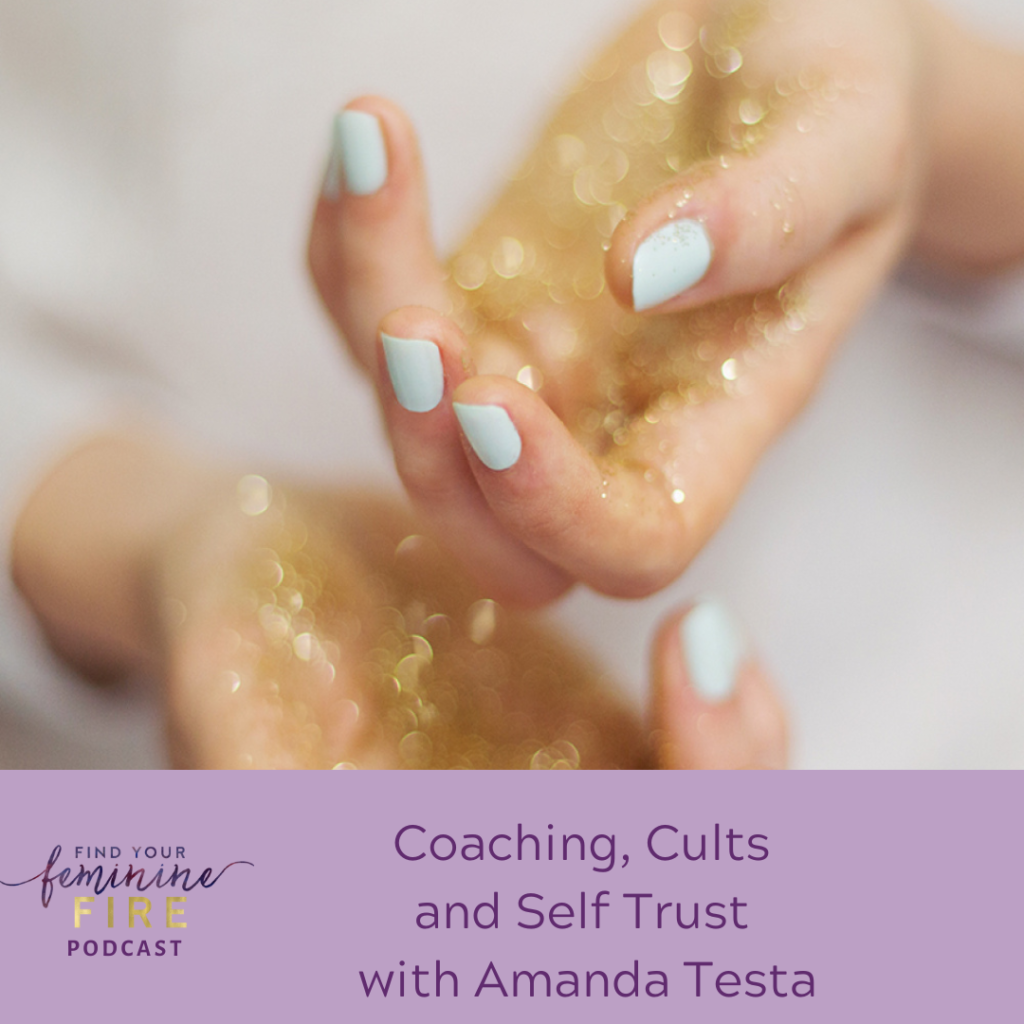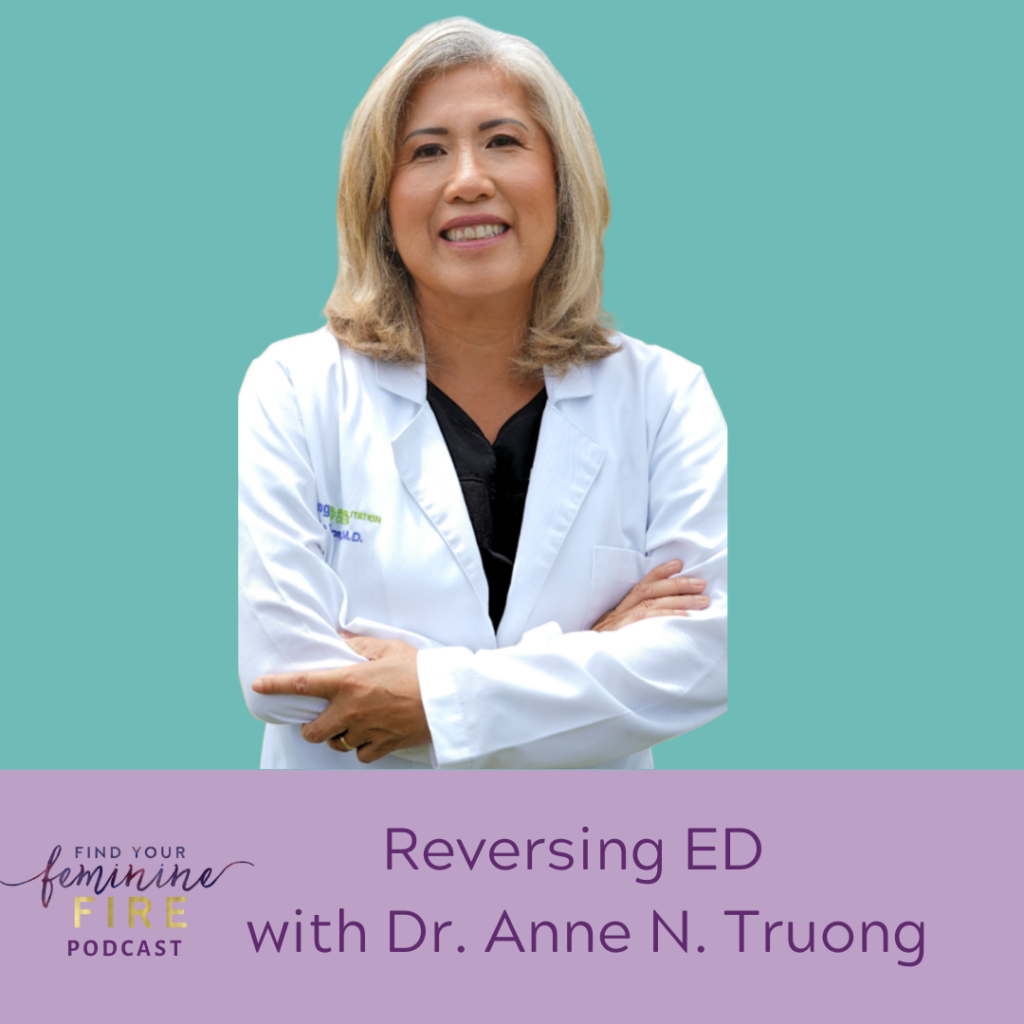SAying goodbye to sexual shame with Amanda Testa
Why our sexual shame holds us back in so many ways – and how working to move past it can invite freedom and expansion in all areas of your life.
I truly believe if there was less shame around sex, there would be less shadow around sex. This is why its paramount to talk about it, to de-stigmatize it, and to find your way to what feels good. Listen in to minisode #5 of 6 as I share what you can do when you’re feeling shame.
Missed the earlier Minisodes?Catch them here:Minisode #1: 80s Parties and Reviving Your Desire
Minisode #2: What to Do When Pleasure Feels Impossible
Minisode #3: Pleasure 101
Minisode #4: What does it mean to “practice pleasure”
_______________________________________________________________________________________
Are you ready to create the Foundation of Pleasure in your life? My pleasure membership is starting in 2023! This will be a space dedicated to cultivating your sexual aliveness, sensuality, and nervous system regulation.
You’ll enjoy monthly Pleasure Rituals guided by me and my guests, as well as community support, live events, and much more.
Get more information and join us HERE!
Listen below, or tune in via: Apple Podcasts,Stitcher or Spotify.
COMPLETE TRANSCRIPT BELOW

JOIN IN THE DISCUSSION ON THIS EPISODE AND MORE IN MY FREE FACEBOOK GROUP, FIND YOUR FEMININE FIRE HERE.
Amanda Testa is a trusted healer, coach, and guide who’s served hundreds of clients over the years with masterful skills in coaching, pleasure embodiment, and somatic trauma resolution.
After thousands of hours of training in trauma informed sex and relationship coaching, tantric sex coaching, energy healing, somatic trauma resolution, breathwork, yoni egg coaching and more, she’s seen time and time again the magic and wisdom of our bodies.
We all have the ability to return to our blueprint of health, aliveness, pleasure and sovereignty, and you can too.
With her powerful, loving and gentle support her clients find their desire and pleasure again, find safety and bliss in their bodies, and remember they are enough just as they are.
Find out more about her new monthly Pleasure Membership HERE.
.
Want more support? Schedule a confidential 1-1 call with Amanda here.
Have a topic or question you’d like Amanda to address on a future episode? Submit it on this anonymous form.
EPISODE 249: How to Say Goodbye to Sexual Shame Amanda Testa: Hello, and welcome to the Find Your Feminine Fire podcast. I’m your host, Amanda Testa, and we’re doing a small diversion from our usual thing. I’m dropping in with six solo podcast minisodes on stories about fun and desire, reviving your pleasure, and at the end of this episode, I’m going to invite you into a really, really fun experience. So, here we go! Today is podcast five of six minisodes, and we’re talking about saying goodbye to sexual shame. Not too long ago, I was leading a women’s circle, and I don’t know, maybe there were 25 or so women-identifying beautiful beings in this circle, and one of the things that I find so powerful about experiences like this is that there is a sacredness to being together in this way. And as I was sitting there looking around the circle at all these different types of bodies and beings and beauty, and everyone there had a unique experience that brought them to the circle. 1:06 But one of the things that one of the attendees said was that she had a lot of shame and embarrassment around just being even a woman, and that growing up it kind of felt more comfortable to be different than that because even being in a female body felt hard. It was interesting because it opened up a really lively conversation, and everyone started to share a little bit more about some of the things that they had shame around. Another woman was sharing how she felt shame that she just never felt desire at all and felt like she was broken, or something was wrong. First of all, that’s not true, and second of all, what happens in those types of situations is that most of the time whatever someone’s sharing, people always say, “I thought I was the only one,” and there are numerous hands that raise, experiencing a similar thing, right? 2:18 I don’t think there is a woman-identifying person out there who can’t relate to, at one point, feeling ashamed of just being in a woman’s body. The fact that we have less rights in a body like this, the fact that we have less power in this body, the fact that maybe you saw other people with different bodies get different types of treatment, and maybe that didn’t seem right to you. Most people can raise their hand to that, right? Most people in this type of body can raise their hand to the fact that there has probably been an experience where they received some unwanted attention in some way that made them feel a little shy about their body in some way. And I don’t know if you relate to any of this, but the reason I share this story is because in this circle what I saw was that there was a woman sharing about shame and being seen and recognized, being seen and realizing I’m not the only one that has this experience. This is universal. 3:18 When we can bring things like that to the light, it’s so healing, and being able just to talk about things that feel hard to say and be witnessed and celebrated in that is so huge. I love, love, love experiences like that, and it made me think, too, you know, around when I’m specifically talking around sexuality and teaching around sex and relationships and all that’s wrapped up there, and that is one of the number one things that comes up with people: embarrassment. Feeling embarrassed that they feel like something’s wrong with them, and I love how Emily Nagoski talks about this a lot in her book, Come As You Are, is that, you know, whatever you’re experiencing, it’s normal. 4:01 We just don’t talk about it. And this is one of the reasons why it’s so important to talk about these things and to bring this stuff to the light because the more we can empower ourselves to allow our pleasure to be, to expect it, to enjoy it, to spread it, the better, and the more understanding we are of others and the less judgmental we are of others and the more liberty there is for all. It’s so true, oh, my gosh. Anyways, I know that you’re probably familiar with Brené Brown and her research on shame, but I love how she has a beautiful way of describing shame, and here’s what she says about shame: “Shame is the fear of disconnection. Shame is the intensely painful feeling or experience of believing that we are flawed and, therefore, unworthy of love, belonging and connection. Shame thrives on secrecy, silence, and judgment.” So, what is the alternative? How can you deal with these things when they come up? 5:02 Because I know from my own personal experience, before I started doing my own work around my sexuality, I too had a lot of shame around sex. It was very performative. It was never about me. It was always about my partner having a good experience. It was never about me. It was about looking a certain way or thinking that I needed to look a certain way, and I think this is a very common thing for a lot of the women that I work with. They feel embarrassed sometimes about maybe the way they look or maybe the way they smell, or they’re worried about all these things that are keeping them from being in the moment, from enjoying the experience, from finding what feels good, from asking for what feels good, right? When we can do this in these situations, we can do it elsewhere. So, empathy, compassion, being curious, bringing these things to light is how you work with shame and how you kind of move through it. Granted, yes, it doesn’t happen overnight, but the more you show up for yourself with compassion and realizing that you’re not alone in this — our culture is built to disempower women. 6:06 Our culture is built to strip pleasure and power away, and when you can regain that back, it is a magical thing. It really is. It changes how you show up in the world. It changes how you show up for the community. It changes how you show up for causes that are important to you. It changes how you show up for everyone, having an opportunity to have more pleasure in the world and having what they want. I truly believe that the more we can talk about this kind of thing and open the conversation, be together to celebrate pleasure, to celebrate what feels good, the more that shifts. It really, really does. The other thing that we can do when it comes to shame is we can spend some time with our own shame and kind of just let it know that we’re there for it. I know this sounds kind of like an interesting concept, but it’s very rooted in what works, and the way our minds work is that we often do have numerous things happening at the same time, right? 7:00 We have both/and. I love that both/and concept where I could be feeling two things at once. I could be feeling both pleasure and shame. I could be feeling both happy and sad. I could be feeling both excited and fearful. This is how our brains work. This is how we are. we’re multifaceted. And so, what we can do when we are experiencing shame around something is kind of examine it. Maybe not at a time when we’re right in it, but afterwards and say, “What was that about? What was coming up for me? Where did I learn the things that made me feel ashamed? Is that true to me today?” Because, really, what we’re trying to do here is reframe how whatever’s happened is working with you today. That’s one of the great things I love about coaching is it’s very forward facing. We want to look at, “All right, well, this is affecting you this way, and how could it be different?” Something that I see work is when we can bring that curiosity and compassion for ourselves, and I know it takes practice, but it can be done, and it’s so beautiful to see what can happen on the other side. 8:00 One of my clients shared with me — I loved how she would always call herself — she was a self-proclaimed prude, and she was very disconnected from her feminine energy, didn’t want anything to do with sex, and just was like, “Ugh, this feels like something I have to do.” Again, sometimes these things take time. There have to be shifts that happen in a lot of areas, and it takes time so be patient and compassionate with yourself, but I love how I got a message from her, and I love getting messages like this. She left a message on my voicemail, and she was like, “Um, I just had to let you know that I am now having the best sex of my entire life. I have never been happier,” and I love hearing stories like that. It reminds me of my own because I do recall when I did this work — I mean, I’ve worked a long time, and I did a lot of study, you know? I’m certified in this. I’ve done lots of education. I’ve done lots of different practices. I’ve spent hours and hours studying, doing my own thing, and doing my own practices – thousands of hours. 9:00 And also, what I found is (you don’t always have to spend this much time) on the other side of even just a few months of doing this work, I realized that the shame that I felt around sex just wasn’t there. And it was amazing, and I remember having an experience connecting with my husband, and we were just pushing our edges and having so much fun, and it was great. I know in the past when those kinds of things would have happened I would have felt maybe guilty or shamed or dirty afterwards, and I didn’t feel that way at all. I felt happy. I felt connected. I felt joyful. I felt alive. That is what can happen. That is what’s possible, and I love that because I think that can feel so far away for people, but it really doesn’t have to be. And so, I wanted to share this story as just a little ray of hope. If you are feeling that way or if you feel shame, I see it time and time again with my clients and my students that there is the other side, right? You can get to the other side. It is possible, and one of the ways it becomes possible is through practice and showing up for yourself. 10:07 I wanted to invite you if you are feeling called to explore what it could look like to create a sensual self-care practice that is nourishing to your body, that is nourishing to your soul, that is nourishing to your sexuality, then I invite you to join me in my Pleasure Foundation membership! The Pleasure Foundation is a place dedicated to your pleasure, your aliveness, your nourishing of your own self, and I am just thrilled. I have been wanting to launch this for years, and it’s finally here! If this is something that you’d like to learn more about, please check out www.amandatesta.com/tpf. This is a place where it is going to be gentle and fun and non-pressured, right? This is a place where you get to explore at your own pace, you are always in charge, and it’s also gonna be a hell of a lot of fun. So, if you’re interested, get your ass in here! We’re gonna be starting January 31st, and I would love to have you! You can find more, again, at www.amandatesta.com/tpf as in The Pleasure Foundation. Sending you lots of love! We’ll see you on the next episode!


